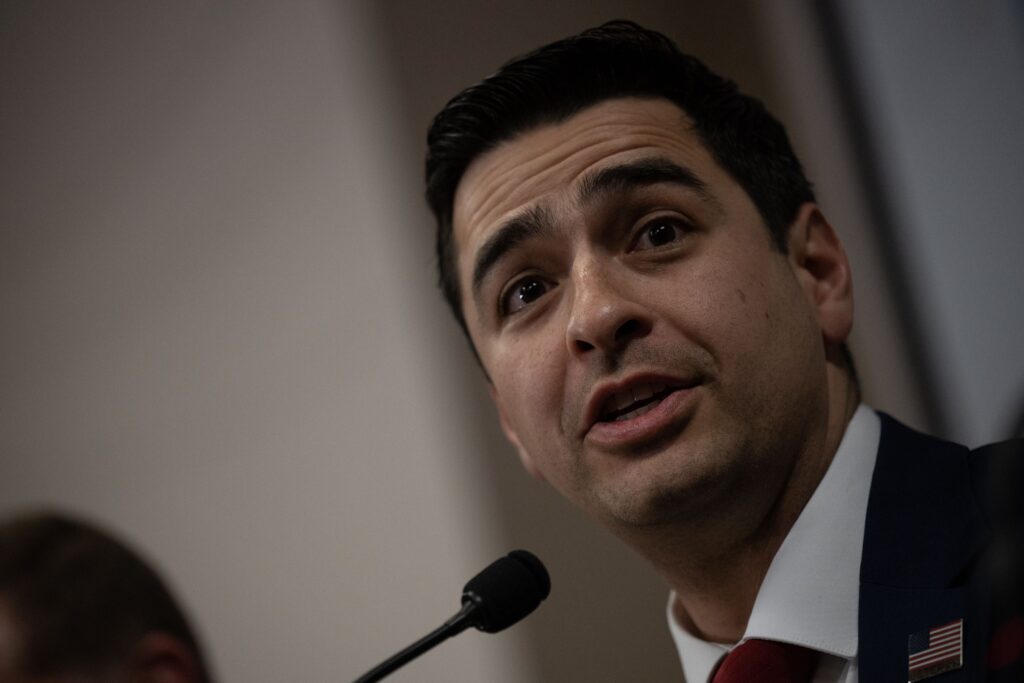Hudson: Exchange running amuck?

The Legislative Health Benefit Exchange Implementation Review Committee convened last week with a new leader serving as its Chair, Sen. Ellen Roberts, R-Durango.
Five Democrats and five Republicans from both chambers have met sporadically over the past few years to monitor the progress of the Colorado Health Benefits Exchange, Connect for Health Colorado. As it designed, constructed and launched an Obamacare Insurance Exchange for Colorado residents, the review committee asked few probing questions, permitting Executive Director Patty Fontneau to proceed pretty much as she saw fit.
Promptly at 7:30 a.m. last Wednesday, Roberts announced that Senate President Bill Cadman had specifically requested that she assume the Chairmanship of the Committee. Roberts indicated the oversight panel would begin meeting every other Wednesday morning through the remainder of the session. She also reported plans to introduce a late bill expanding the number of scheduled committee meetings from five to 10 through the remainder of the year. While the word “mistrust” was not used, Roberts made it clear suspicions have developed that the Exchange has become a legislative creature that may well be running amuck.
“I take oversight seriously,” she admonished those in attendance. A former member of the committee in 2013, she has been openly critical of the swashbuckling secretiveness that she believes has characterized management of the exchange.
While interim Exchange Director Gary Drews and Board Chair Sharon O’Hara were welcomed, they were asked to confine their introductory remarks to formalities in order to allow time for the State Auditor’s office to present its blistering financial report on Exchange payments issued last December. It was noted that a more expansive audit authorization that includes management practices, administrative processes and legal compliance issues has been approved by both legislative bodies and is now awaiting the Governor’s signature.
The state auditor’s report, based on a random sampling of vendor payments by Connect for Health, identified multiple financial control deficiencies. These findings were reinforced earlier this week in an internal audit released by the Exchange. It is evident that during the rush to create a marketplace ready to accept insurance enrollments by September of 2013, money was being spent faster than the Exchange could properly track it. Buried in the state auditor’s report is an estimate that vendor payments were being made at a rate of $8.7 million dollars each month, or $300,000 a day. Predictably, the paper trail was incomplete, authorizations missing or proof of completion absent in an alarming proportion of sampled cases, approaching 20 percent of invoices. Although there was an obvious lack of fiscal controls, there is also little evidence of any organized fraud or misrepresentation. Nonetheless, perhaps as much as 10 percent of expenditures were mishandled, including violations of federal grant guidelines, miscoding of charges, payments altered on the basis of verbal instructions without any supporting documentation and contracts let without authorizing signatures or approvals and, in some instances, expanded in scope without further review by the Board.
In defense of the implementation managers, the Colorado Exchange, while not entirely without “glitches”, functioned far better than did the federal rollout of state exchanges in 2013. Nonetheless, these federal exchanges have now fixed most of their original software problems (albeit, only upon the expenditure of tens of millions of dollars for emergency programming help), while Connect for Health Colorado still finds itself plagued with operational bugs. Its interface with the state’s Medicaid eligibility determinations continues to consume more than 50 percent of call center time, despite several attempts to mediate disputes between the Exchange and Colorado’s Health Care Policy and Financing (HCPF) staff. The shop portion of the Exchange, intended to serve small business customers, has never functioned properly and few brokers have been willing to attempt to navigate these obstacles, even in cases where business clients would otherwise be eligible for federal subsidies.
Another brewing embarrassment is the subset of customers who qualified for premium subsidies on the basis of their 2013 incomes, but who are now filing 2014 tax returns and learning their actual income has exceeded a threshold that leaves them liable for reimbursing Uncle Sam thousands of dollars.
WORRYING ABOUT THE RIGHT THINGS
While audits are useful, there is little reason to believe that Connect for Health was insincere when it agreed to remedy the deficiencies identified by the state auditor. Nor do most of the managers who shepherded the Exchange into life remain with the organization. To the contrary, they (CEO, COO, and CFO) traded their initial success for better paying jobs with Exchange vendors and now labor beyond the reach, much less the grasp, of legislative witch hunts.
To be sure, there are curious facts that it would be interesting to illuminate – why, for example, did the entire Connect for Health payments staff resign in March of 2014? If the review committee decides to focus on besmirching the reputations of miscreants, as appears imminent, they will be ignoring the genuine concerns that should be occupying their attention.
Whatever has happened in the past, keeping the Colorado Health Benefits Exchange solvent in the future is the challenge that needs to be met in 2016 and beyond. Seeking direction from audits is rather like steering your car while staring intently in the rear view mirror. What happened has happened. Investigating that journey, however sinuous, getting it right and making sure it is never repeated remains a worthwhile chore. But it offers precious little help in assuring the Exchange becomes self-sustaining as required by the Affordable Care Act.
Whatever your personal opinion of Obamacare — its wisdom, efficacy or legality — it has permanently reshaped the delivery of health benefits in America. I was surprised recently to discover that ripples created by the Affordable Care Act are reshaping the medical care marketplace for all of us, even those who work for large employers that have traditionally operated their own, self-insured trusts. Benefit consultants and HR managers are finding it smarter to rely on private exchanges that transfer medical risks onto insurers. These private exchanges offer bronze, silver and gold plans modeled after the federal exchanges, exempting employers from the need to develop and manage their own PPOs or Accountable Care Organizations. Employees report greater satisfaction (87 percent) with the choices they are offered, in some cases even a platinum option that covers 95 percent of medical losses. Employers report far more predictable health care costs and no desire for returning to the historical model.
With Connect for Health dependent on assessments and fees levied against policies marketed through the exchange for its operating revenues, it is important to evaluate just who is selling current policies. Colorado Health-OP, the Obamacare Health Benefits Co-operative initially sponsored by Farmer’s Union, sold more than 40 percent of the policies purchased during the 2014 Colorado open enrollment. Health-OP is a newly formed, consumer owned and operated insurer established as an alternative in the Affordable Care Act. Without a “public option” provider, the co-ops were envisioned as a potential low cost entrant in the Exchange marketplace. At least one (Iowa/Nebraska) has failed. The question is being discreetly raised, “Can Health-OP survive?” It has already weathered several audits, as well as a rate review through the Division of Insurance. The notion that it is now “joined at the hip” with the Exchange and the failure of one will doom the other seems alarmist. There is considerable envy of their success within the industry, even though few complaints were heard in 2013 when Health-OP inherited most of the “Cover Colorado” clients and their chronic medical conditions. These were clients that traditional insurers had been denying coverage for decades. The actuarial law of large numbers may be working in Health OP’s favor. The only co-op in the country to show a profit last year was in Maine, where they successfully captured 83 percent of Exchange business because of few competing entrants. Interestingly about 30 percent of Health-Op customers have purchased their coverage directly, bypassing the Exchange.
Other questions that deserve answers include : why did the Governor remove his appointee, Ellen Daehnick, from the Exchange Board? It appeared to most observers that her penchant for tough financial questions simply grew too embarrassing. Is there a conflict of interest on the Exchange Board where Insurance Commissioner Marguerite Salazar holds an ex-officio position while her husband, Arnold, chairs the Board’s Finance Committee? Why can’t the Exchange and Medicaid staffers at HCPF reach a truce? Does anyone really care about fixing the small business interface on the exchange? Just asking.
Miller Hudson is a public affairs consultant. He can be reached at mnhwriter@msn.com













